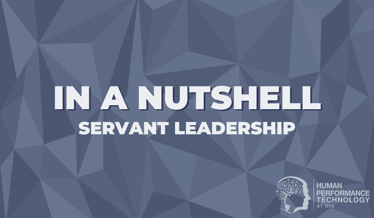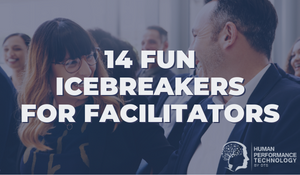The Nous of Brad Pitt

Did you know that the word intelligence comes from the ancient greek term nous? In fact, the very first appearance of nous comes from the first book of Homer’s epic the Iliad, when Achilles (a greek soldier) tries to convince Agamemnon (the Greek leader and besieger or Troy) to return a captured Trojan woman.
Agamemnon: "Do not thus, mighty though you are, godlike Achilles, seek to deceive me with your nous; for you will not get by me nor persuade me."
Nous was later translated into Latin as intellectus and into French, and then English as intelligence.
If you remember the 2004 Hollywood movie Troy you will probably not be surprised to learn that it doesn't stay 100% true to the original story of the Iliad. However, there were certain elements that the film did an excellent job of capturing - such as the mutual contempt between Achilles and Agamemnon, and especially; the physical and mental sharpness that Brad Pitt (as Achilles) is able to convey on the big screen.

In ancient Greece, nous was much closer to the idea of “common sense”, “intuition” or "attunement to one’s surroundings”. Achilles was able to make swift, effective decisions in combat, as if he knew exactly which way to dodge, weave and strike his opponent; a gift that was said to be unlike any other soldier in the Greek army.

Nowadays, “a man of great intelligence” conjures up the image, not of a shrewd sworded warrior, but perhaps a brainy, well-read scholar decorated with glasses.
Due to the emphasis that modern education has placed on young minds to be good with linguistic and logical reasoning; the twin academic abilities (English and Maths); the standardise testing establishment has since come to highjack our view of intelligence and most people now think of it as "that score you get on an IQ test."

Back in 2009, SBS Insight aired “Braniac” to have a discussion around the nature of Intelligence. The opening exchange is worth reading slowly.
JENNY BROCKIE: "Welcome, everybody, very intimidating audience I have here tonight I have to say! Tiara, let me start with you. You have an IQ which is in the top 2% of the population. What do you think intelligence is?"
TIARA: "Oh, a lot of that really depends on how you define intelligence."
JENNY BROCKIE: "How do you define it?"
TIARA: "I think for me intelligence would be the ability to grasp a topic or to grasp a concept and it also the ability to make use of it. So I subscribe to the theory of there being multiple intelligences; the eight intelligences; there's kinesthetic, there's visual and language intelligence... like people are intelligent in different ways."
Tiara’s answer (true to her language reasoning gift) is spot on:
“The ability to grasp a concept; the ability to make use of it; thus there are many intelligences.”
While there is no universal consensus on the exact definition of intelligence, Tiara supports the growing belief that it comes in different shapes and sizes.

Howard Gardner did the world a favour in 1983 by introducing a theory of multiple intelligences with the publication of Frames of Mind, which differentiated intelligence into eight types:
- Visual-spatial
- Linguistic
- Logical-mathematical
- Bodily-kinesthetic
- Musical
- Interpersonal
- Intrapersonal
- Naturalistic
The theory played a major role in helping to push forward the idea that intelligence is diverse, rather than seeing it as dominated by a single ability that can be easily measured.
Achilles would be the ultimate example of Bodily-kinesthetic (movement intelligence), though in the movie he also displays strong Interpersonal (people intelligence) with his ability to rally other soldiers, as well as Intrapersonal (self intelligence) exemplified by the line "I want what all men want, I just want it more", when telling of his desire for glory to Briseis (a Trojan captive).

Today, Interpersonal and Intrapersonal are better known under the single term Emotional Intelligence, brought to the public’s attention in the mid 1990s. Since then, EQ has come a long way.
This series on Emotional Intelligence will seek to restore some of the nous back into intelligence, as we voyage into the mystery of emotions; illustrating why EQ is important, how it works, and why people have begun calling it the “foundational competency.”
Topics:
Emotional Intelligence
Theo Winter
Client Services Manager, Writer & Researcher. Theo is one of the youngest professionals in the world to earn an accreditation in TTI Success Insight's suite of psychometric assessments. For more than a decade, he worked with hundreds of HR, L&D and OD professionals and consultants to improve engagement, performance and emotional intelligence of leaders and their teams. He authored the book "40 Must-Know Business Models for People Leaders."



We Would Like to Hear From You (0 Comments)